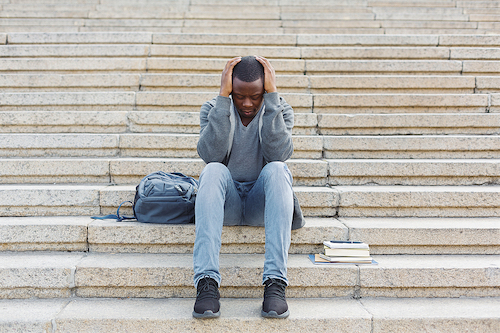December 18, 2024
by Elizabeth Pratt

Feeling lonely has a greater impact on sleep for college students than too much screen time.
Research from Oregon State University found that students with high levels of loneliness were more likely to have difficulties sleeping compared with less lonely students, regardless of their level of screen time.
[More]
August 13, 2024
by Patricia Tomasi

A new study published in the Journal of Positive Psychology looked at perceived gratitude in family relationships. “This study examined the unique effects of perceived gratitude from spouses/romantic partners,” study author Allen W. Barton told us, “as well as from children for outcomes in areas of couple, parenting, and individual well-being.” Barton is an assistant professor and extension specialist at the University of Illinois.
[More]
July 2, 2024
by Patricia Tomasi

A new study published in Child Development looked at how children and adolescents rectify unequal allocations of leadership duties in the classroom. “This study is about whether children and adolescents recognize when biases occur in the classroom and what they think about it,” study author Melanie Killen told us. “One context where this happens is when teachers assign students to take on highly valued leadership duties (e.g., assigning only boys to become crossing guards)."
[More]
June 27, 2024
by Elizabeth Pratt

Violence and aggression against teachers has grown since the COVID-19 pandemic began.
Research published by the American Psychological Association found that whilst threats and violence decreased during the pandemic, they have now returned to pre-pandemic levels or increased.
[More]
February 13, 2024
by Patricia Tomasi

A recently published study looked at depression detection using in-the-wild smartphone images. “Our study, MoodCapture, explores the innovative use of smartphone technology to detect signs of depression through ‘in-the-wild’ facial expressions captured by the front-facing camera during routine phone unlocks or app use,” co-first author Subigya Nepal told us. “We aimed to assess whether these spontaneous images, which reflect authentic emotions free from the biases of self-presentation, could serve as reliable indicators for depression."
[More]
June 27, 2023
by Patricia Tomasi

A new study published in the Journal of Athletic Training looked at self-reported mental health measures among incoming collegiate student-athletes who had COVID-19. “We were interested in seeing if a young, highly active group experienced a lasting emotional upheaval following recovery from COVID-19,” study author Melissa Anderson told us. “Based on reports that up to a third of people who had a COVID-19 diagnosis experience persistent psychological symptoms, we expected to see similar results in our study."
[More]
May 30, 2023
by Elizabeth Pratt

The decision making capability of college students has likely been negatively impacted by the COVID-19 pandemic.
Researchers from Ohio State University found that students had less consistent decision making in the fall semester of 2020 compared with students who had previously participated in the study in previous years.
[More]
July 30, 2022
by Elizabeth Pratt

Children who participate in extra-curricular activities are happier than their peers who spend their time playing video games or on social media.
Whether it be music lessons, clubs, catch ups with friends or sports practice, children who did out of school activities had greater wellbeing.
[More]
June 29, 2022
by Elizabeth Pratt

Fewer high school students attempt suicide in states that have enacted hate crime laws that protect LGBT+ people.
Researchers from the University of Indianapolis and The Ohio State University found that the reduction in suicide rates didn’t only occur among sexual and gender minority students, but also among heterosexual students.
[More]
June 28, 2022
by Elizabeth Pratt

Children who play well with peers when they are pre-school age have better mental health later in life.
Researchers from the University of Cambridge found that the capacity to play well with other children, known as “peer play ability” has a protective effect on the mental health of a child.
[More]